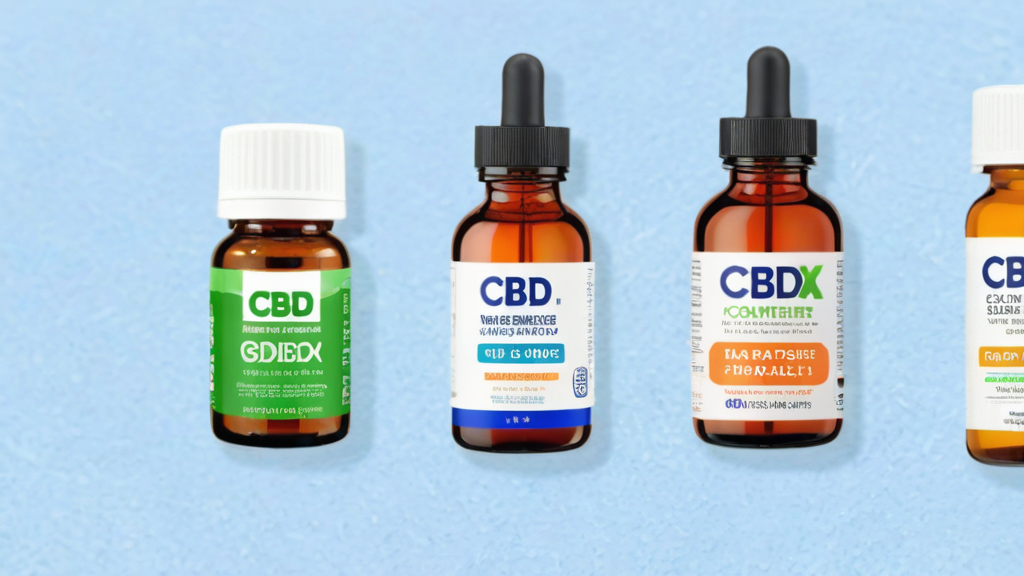Introduction
In the world of CBD, there are different types of products available, including full-spectrum and broad-spectrum CBD. These terms refer to the composition of the CBD and other compounds found in the cannabis plant. Understanding the differences between full-spectrum and broad-spectrum CBD can help you make an informed decision when choosing a CBD product that suits your needs.
Full-Spectrum CBD
Full-spectrum CBD contains several components of the cannabis plant, including trace amounts of tetrahydrocannabinol (THC). It is important to note that federally legal full-spectrum products will always have less than 0.3% THC. In states where cannabis is fully legal, you may also find full-spectrum products with higher THC levels. The presence of THC in full-spectrum CBD is believed to contribute to what is known as the entourage effect, where the various components of cannabis work together to provide enhanced benefits.
Benefits of Full-Spectrum CBD
One of the biggest benefits of full-spectrum CBD is the potential to experience the entourage effect. This theory suggests that when multiple components of cannabis work together, you may experience more benefits compared to using each component individually. The components found in full-spectrum CBD include phytocannabinoids like CBD and THC, flavonoids, and terpenes, which are compounds that affect the scent and flavor of cannabis.
Considerations for Full-Spectrum CBD
While full-spectrum CBD offers potential benefits, there are a few considerations to keep in mind. First, if you take a large enough dose of a potent full-spectrum product, you may feel the effects of THC and experience a euphoric effect. However, small doses of lower potency products are unlikely to produce any intoxicating effects. Additionally, since full-spectrum products contain THC, there is a higher risk of testing positive for cannabis if you undergo a drug test.
Broad-Spectrum CBD
Broad-spectrum CBD is another type of CBD that does not contain THC. However, it does contain other components of the cannabis plant, making it a middle ground between full-spectrum and CBD isolate. Broad-spectrum CBD still contains cannabinoids, terpenes, and flavonoids, which may offer benefits beyond CBD alone.
Benefits of Broad-Spectrum CBD
One of the benefits of broad-spectrum CBD is that it allows you to experience the potential benefits of the various components of the cannabis plant without the presence of THC. This means you can potentially avoid any intoxicating effects while still reaping the benefits of other cannabinoids, terpenes, and flavonoids.
Considerations for Broad-Spectrum CBD
While broad-spectrum CBD offers benefits, it’s important to note that CBD without THC may not be as effective as the two together. More research is needed to fully understand the entourage effect and how different components of cannabis work together. Additionally, it’s worth mentioning that some drug tests may check for CBD, so if you’re concerned about drug testing, you may want to consider broad-spectrum or isolate CBD products or skip CBD altogether.
CBD Isolate
CBD isolate is the purest form of CBD, containing only CBD without any other cannabinoids or compounds from the cannabis plant. This means there is no chance of benefiting from the entourage effect. CBD isolate may be a suitable choice for those who want to avoid THC altogether or prefer a product without any flavor or odor.
Benefits of CBD Isolate
While CBD isolate may not offer the potential benefits of the entourage effect, there is research suggesting that CBD isolate may still provide some benefits. However, it’s important to note that clinical studies on CBD are still limited, and the FDA has only approved prescription Epidiolex for certain conditions.
Choosing the Right CBD Product
When choosing a CBD product, it’s essential to consider your individual needs and preferences. Here are a few factors to keep in mind:
1. THC Content
If you want to avoid THC altogether, broad-spectrum or isolate CBD products may be the best choice for you. However, if you’re comfortable with the presence of THC and want to potentially experience the entourage effect, full-spectrum CBD could be a suitable option.
2. Drug Testing
If you’re concerned about drug testing, it’s important to be aware that some drug tests may check for CBD. In that case, any CBD product could potentially show up on a drug test. If drug testing is a concern, consider broad-spectrum or isolate CBD products or consult with your healthcare provider.
3. Quality and Transparency
To ensure you’re getting a quality CBD product, look for brands that provide up-to-date certificates of analysis (COAs) from third-party labs. These COAs should confirm the THC and CBD content, as well as test for contaminants like pesticides, heavy metals, and molds. Additionally, consider the brand’s manufacturing processes and certifications.
4. Dosage and Usage
CBD products come in various forms, including oils, pills, gummies, and topicals. Consider how you prefer to use CBD and choose a product that aligns with your preferences. It’s also important to start with a low dosage and gradually increase if needed, as individual responses to CBD can vary.
Conclusion
In summary, full-spectrum, broad-spectrum, and CBD isolate are three different types of CBD products with varying compositions. Full-spectrum CBD contains THC and other components of the cannabis plant, potentially offering the entourage effect. Broad-spectrum CBD does not contain THC but still includes other cannabinoids and compounds. CBD isolate is pure CBD without any other compounds. When choosing a CBD product, consider factors such as THC content, drug testing, quality and transparency, and dosage and usage preferences. It’s always best to consult with your healthcare provider before starting any CBD regimen.
